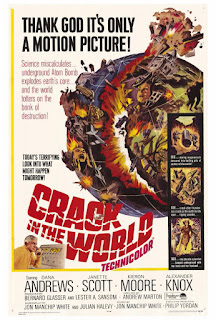Directed
by Jaume Collet-Serra; produced by Alex Heineman and Andrew Rona
The
life of an insurance salesman and former police officer (Liam Neeson) is
derailed one day when he is unexpectedly fired. At the commuter-train station,
his wallet and telephone are stolen. As if this were not enough, he is
approached by a mysterious woman (Vera Farmiga) who offers him $100,000 to
identify someone on the train who “doesn’t belong”. Facing a double mortgage,
his son’s impending college costs and unemployment, Neeson agrees but
then has second thoughts. He isn’t allowed off the ride so easily, however, and
he has to see this adventure to the end of the line.
Since
he became an action-hero at the age of 56, in the film Taken, Neeson has starred
as the unlikely protagonist in a string of such thrillers, four of them now
under the same director. Some have been better than others, and The Commuter
probably fits right in the middle. Undoubtedly, its plot is similar to that of
Non-stop, and is terribly contrived – though, to be fair, the last two minutes
suggest that the contrivance was deliberate. The villains are a bit too
omniscient here, able to prevent Neeson from leaving the train or calling for
effective help, and there is that moment, too often found in such movies, at
which the viewer might ask, “Why didn’t the villains do that at the start?” But
I am someone who finds no problem with such stories as And Then There Were
None, also very contrived, but very good, even so.
The
Commuter isn’t very good, and it will
likely divide audiences into those who, well, not love it or hate it – it won’t
engender such strong feelings as that – but who like or dislike it. The writing
does generate tension. The fight scenes are exciting and, at 66 (playing six
years younger) Neeson fortunately is shown receiving more punishment than he
gives. But what he goes through is not impossible for a reasonably fit sixty
year old. In fact, though, he generally looks suitably tired and weary, not at
all dreading retirement, feelings suggested by the chronological montage with
which the film opens.
The
direction weaves from the effective to the pointless. There are a number of camera
tricks (the old zoom-in-while-panning-out to create the effect of a tunnel was
done to death in the 1980s) that seem to be straight out of film school. And
the crash scene, which occurs about two thirds through the movie is created,
not quite successfully, with computers. I much prefer the use of models or
life-size mock-ups (remember the unbeatable train wreck in The Fugitive?). The
scene in The Commuter was included probably because it was thought that people
would be disappointed if it didn’t happen, or because it was in the budget. In
any case, it is fortunately not the climax.
The
acting is very good, as may be expected from the performers. Neeson has been
called lately the new king of the B-movies. This is unfair, since a number of
his recent films have been otherwise. But, discounting the money that went into
The Commuter, it might qualify, as this is the sort of story, with its Heath
Robinson plot and commendable performances, that would fill cinemas in the
1940s and ‘50s. Neeson is the heart of the show, with Farmiga cool and ruthless
– initially rather adorable – as the instigator of proceedings. Sam Neill has a
small part as a police captain, and Elizabeth McGovern, too infrequently seen
in films, is the infrequently seen wife of the hero.
While
The Commuter, then, may travel familiar territory, and take an unnecessarily
winding route, it is worth the price of a seat for a Saturday night’s ride.




















